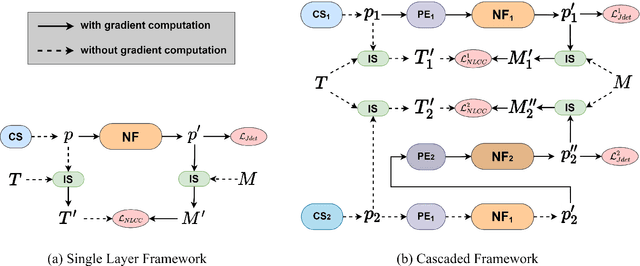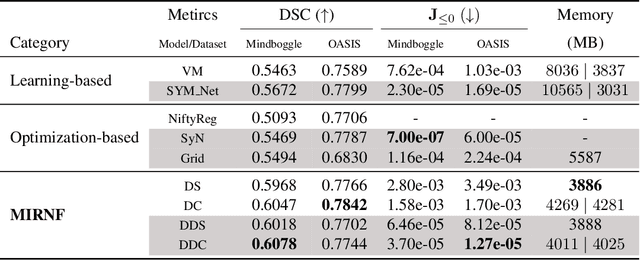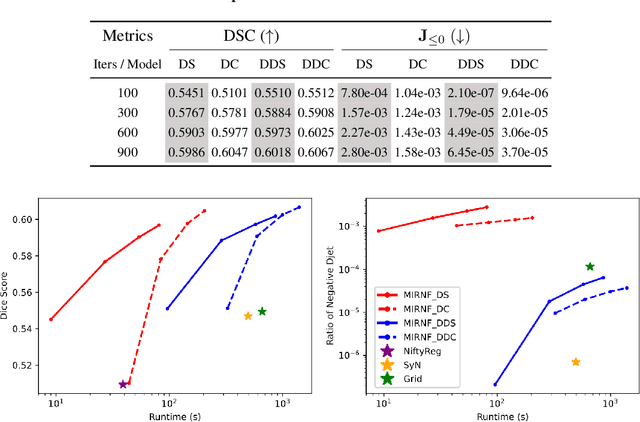MIRNF: Medical Image Registration via Neural Fields
Paper and Code
Jun 07, 2022



Image registration is widely used in medical image analysis to provide spatial correspondences between two images. Recently learning-based methods utilizing convolutional neural networks (CNNs) have been proposed for solving image registration problems. The learning-based methods tend to be much faster than traditional optimization-based methods, but the accuracy improvements gained from the complex CNN-based methods are modest. Here we introduce a new deep-neural net-based image registration framework, named \textbf{MIRNF}, which represents the correspondence mapping with a continuous function implemented via Neural Fields. MIRNF outputs either a deformation vector or velocity vector given a 3D coordinate as input. To ensure the mapping is diffeomorphic, the velocity vector output from MIRNF is integrated using the Neural ODE solver to derive the correspondences between two images. Furthermore, we propose a hybrid coordinate sampler along with a cascaded architecture to achieve the high-similarity mapping performance and low-distortion deformation fields. We conduct experiments on two 3D MR brain scan datasets, showing that our proposed framework provides state-of-art registration performance while maintaining comparable optimization time.
 Add to Chrome
Add to Chrome Add to Firefox
Add to Firefox Add to Edge
Add to Edge